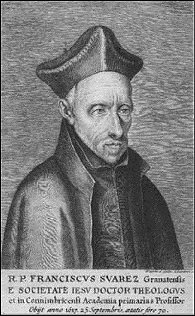


| GENERAL | SECTIONS | DETAILS | ORGANIZERS |
Francisco Suárez (1548–1617) can be regarded historically as by far the most important metaphysician of the period usually called “second scholasticism”. The historical significance of Suárez’s metaphysics consists in the fact that it forms an important milestone between the traditional scholasticism and the early-modern, mainly rationalist, philosophy. On the one hand, the metaphysics of “the Outstanding Doctor” can be seen as the consummation of the Aristotelian-Scholastic tradition. On the other hand, one can treat Suárez as a significant anticipator of the early modern metaphysics. Suárez’s metaphysics is of interest also for systematic reasons, as historically his Metaphysical Disputations (1597) constitute the first complex metaphysical system independent of Aristotle´s model.
The main purpose of the Conference “Suárez’s metaphysics: Disputationes Metaphysicae in Their Historical and Systematic Context” is to bring together not only historians of philosophy, but also philosophers concentrating on systematical philosophy from all over the world and encourage them to carry out further work on Suárez´s metaphysics. We hope that our conference will provide an opportunity for scholars working on Suárez and second scholasticism in general, dispersed all over the world, to get in touch with each other and become a community. As an especially important part of this goal we envisage the mediation of contact between researchers from the Hispanic world and scholars from non-Romance-speaking countries.
The second main purpose of the Conference is to found the germ of “The International Society for Post-medieval Scholasticism” to bring together researchers inquiring into philosophy and theology not only of the Second but also of the Third scholasticism. Despite the existence of the excellent web site Scholasticon administered by Jacob Schmutz, that presents biographies and bibliographies of almost all important scholastic authors living between 1500–1800, we believe that closer and more intensive co-operation among the presently rather solitary researchers is highly desirable. The newly founded Society should provide a basis for such co-operation.